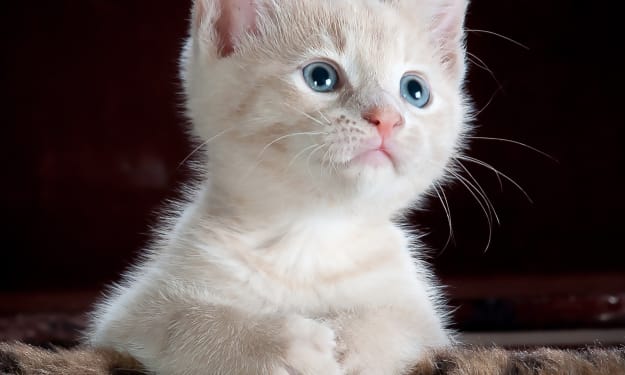Decoding the Mysterious Behaviors of Cats:
From Wild Predators to Adorable House Companions

Cats, those enchanting creatures that grace our homes with their presence, have a knack for entertaining us with their quirks and peculiarities. From pouncing on invisible prey to sharpening their claws on your furniture, cats' behaviors often leave us puzzled and intrigued. In this blog post, we'll explore the fascinating world of feline behavior, shedding light on why cats do what they do.
The Pouncing and Hunting Instinct
If you've ever watched a cat playfully pounce, you're witnessing a behavior deeply ingrained in their evolutionary history. Cats are natural-born hunters, and this instinctual behavior has been honed over millions of years. In the wild, survival depended on their ability to stalk, pounce, kill, and eat their prey. While house cats may not need to hunt for their dinner, their instinctual drive to chase and pounce on toys mirrors the hunting strategy of their wild ancestors.
Climbing and High Vantage Points
Have you ever wondered why your cat seems so determined to reach the highest perch in the room? This behavior is a throwback to their days as solitary predators. In the wild, cats relied on their exceptional climbing skills to survey their territory, spot potential prey, and evade larger predators. Even though domestic cats may not need to spot prey from atop your bookshelf, their instinctual drive to seek high vantage points remains intact.
Fascination with Small Spaces
Cats' obsession with squeezing into tiny spaces and exploring unconventional hideaways can be traced back to their role as both predators and prey in the wild. Small prey often sought refuge in cramped hiding spots, and cats had to be both curious and agile to locate and capture them. This curiosity for hidden spaces and openings is a survival trait that has persisted in domestic cats.
Claw Sharpening and Scratching
If you've ever wondered why your cat seems to have a vendetta against your furniture, the answer lies in their evolutionary history. In the wild, cats needed sharp claws for climbing, hunting, and self-defense. Scratching nearby surfaces helped them maintain strong, sharp claws, stretch their back and leg muscles, and relieve stress. So when cats decide to sharpen their claws on your sofa, they're not being malicious—they're simply following instincts that have been passed down for generations.
The Mysterious Purr
One of the most intriguing aspects of cat behavior is their purring. Cats may purr for various reasons, including happiness, stress, or hunger. But the fascinating part is that the frequency of a cat's purr falls within a range (25 to 150 hertz) that is believed to promote tissue regeneration. So while their purring makes them excellent nap companions, it might also be contributing to their muscle and bone health.
The Wild Within
Understanding cats' behaviors becomes more accessible when we consider their dual roles as solitary predators and prey in the wild. Cats have retained many of the same instincts that allowed them to thrive for millions of years. When cats explore your home, they see it as their jungle, and their behaviors reflect their natural instincts.
So, what do cats think of us, their human companions? Are we simply big, hairless cats competing for resources? Or perhaps we're the "predators" they effortlessly outsmart every day. On the other hand, they might just view us as potential prey. While we may never fully decipher the complex thoughts of our feline friends, appreciating their instincts and behaviors adds to the wonder of having them as our companions in the modern world.
About the Creator
Resian Sankei
Passionate environmentalist, psychology enthusiast, and avid writer on a mission to inspire change and spark curiosity.






Comments
There are no comments for this story
Be the first to respond and start the conversation.